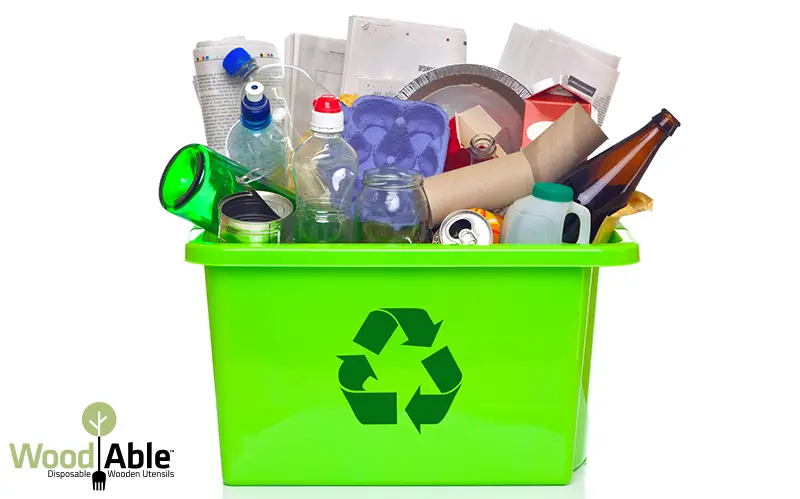WoodAble Blog
How Recycling Can Get Contaminated
Recycling isn’t magic. What you put in the recycling can goes into various kinds of machinery to be chopped, melted or broken down in some way. Some things can’t be broken down at all. Others get stuck between moving parts, and sometimes an entire batch can be contaminated by just one thing. Recycling only works when we all become more savvy about how to separate it all.
Do your best not to contaminate your recycling bin with non-recyclable items. Sometimes the entire bin will have to be rejected.
- Clean all items before putting them into the recycling bin. They’d love for you to remove labels, too.
- Anything with oil (car or cooking), margarine, grease, wax, glossy finish, salad dressing, sauces, pizza or cheese is ruined because the recycling process sometimes uses water to help break down items. These are not water-soluble, and cannot be recycled. Do not put these in your bin because they will contaminate the other items in the load.
- Flimsy plastics, bubble wrap, packing pillows, and films such as plastic wrap, grocery bags, microwave pouches and snack bags such as potato chip bags get caught in the machines. They cannot be recycled normally. They need to go to special recycling stations to be properly broken down.
- Styrofoam breaks down into toxic ingredients, so it is not recyclable at all. Do not put these in your bin.
- Containers that held chemicals, pesticides or medical prescriptions or personal use supplies, drinking straws and old contact lens cases are too contaminated to remake into something else. They don’t go in the bin.
- Plastic bottle caps cause a problem unless they are still attached to the bottle. Wash the bottle out and put the cap back on.
Keep your recycling bins clean so recyclables don’t become contaminated. For everything else, consult with your county recycling department, get the iRecycle app, or look up RecycleNation.
Choose a category, and the app will help you find a local place that will accept the item, such as batteries or paint.

